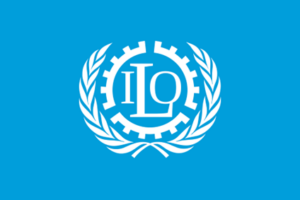Statement and Recommendations by the Task Force on Human Trafficking for the Parliamentary Intelligence Security Forum regarding Trafficking in Persons
on the One Year Anniversary of the Taliban Takeover of Afghanistan
August 15, 2021 was a day for Afghanistan and the world when the Taliban seized control of the government and the freedom of its citizens. As a result, more than six million people were displaced, over 2.6 million of these crossing Afghanistan’s borders. Desperate Afghans risked their lives, sent their children with strangers, and left their homes to escape the confines of tyrannical rule under the Taliban. Their oppression has rolled back decades of advancements in education, government and civil society and is particularly harmful to women and children, especially through sex trafficking and forced marriage, which are forms of modern slavery.
Impact of Taliban Rule on Human Trafficking
The absence of the rule of law has placed all people in Afghanistan at risk, with women and children at especially high risk of sex slavery, and early and forced marriage. Currently, under Taliban rule women and girls may not leave their homes without a man traveling with them. They are not able to attend school or have a career, and they are forced to wear clothing that does not allow the sun to touch their face. “They are living in an open prison,” according to the former Afghan Vice President of Parliament Fawzia Koofi. Under Taliban rule, boys and girls are actively sold into forced labor, as sex slaves or as “brides.” According the 2022 US Trafficking in Persons Report the Taliban has, “continued a government pattern of sexual slavery in government compounds.” Despite the Taliban’s statement in December 2021 declaring forced marriage illegal, there are substantial reports of an increase in forced marriage, and families are asked to give their daughters in marriage to Taliban leadership. Parents are also increasingly making the unimaginable choice to sell their own children into slavery in order to feed other family members due to the Taliban-caused humanitarian disaster that is grappling the country. Women, girls and boys are used as “rewards” for Taliban leadership and to strengthen the Taliban’s economic power so that they can tighten their repressive rule.
Terrorists, human traffickers, and other bad actors assisted the Taliban in their takeover of Afghanistan by which they incited and then capitalized on chaos and human suffering. Of the more than 2.6 million people who have left Afghanistan, many are living throughout the world in temporary housing with no viable or sustainable source of income. With soaring inflation and increasingly limited economic opportunities in the West, these people are incredibly vulnerable to labor exploitation, sex slavery and forced marriage even outside the borders of Afghanistan. Consequently, a primary way to prevent increasing human trafficking within the Afghan population is by reducing the necessity of cross-border migration flows, and for this to be achieved fundamental human rights must be restored to women. One of the primary “push” factors for increasing migration flows out of the country is the safety and security of women and children, and this requires the restoration of fundamental human rights to women including education and positions of authority within government and law enforcement.
Recommended Action by the United Nations, International Criminal Court and UN Member States:
We are asking the United Nations, International Criminal Court and UN Member States to take targeted measures to hold the Taliban accountable and restrict their power for the sake of preventing human trafficking in addition to the desperate need for increased peace and stability in the region. Without direct action by the international community, an entire generation of women and girls will be silenced and enslaved. Naheed Farid, who was the youngest member elected to the Afghan Parliament, has told the United Nations that, “Action needs to be taken to ensure that the de facto authorities in Kabul develop an inclusive and fully representative governance body that represents the diversity of society.”
§ United Nations Security Council (UNSC): We urge the UNSC to impose an immediate travel ban on Taliban leadership. Their freedom should be restricted while they actively restrict the freedom of those under their rule. They have also utilized their travel to strengthen diplomatic ties with China and Russia, further jeopardizing global security. We also recommend the prevention of human trafficking through promoting the reduction in migration flows out of Afghanistan. This can be achieved by delegitimizing the authority of the Taliban on the world stage through disallowing their participation in future UNSC events until they provide fundamental freedoms to their citizens including education and the restoration of women to positions of authority within government and law enforcement.
§ International Criminal Court (ICC): We recommend that the ICC investigate all crimes committed in Afghanistan within its jurisdiction, with priority to those that fall under the definition of trafficking in persons. There is increasing international concern about the ability of terrorists and tyrannical states to engage in human trafficking as a revenue source for their operations, and, therefore, human trafficking should be a priority for the Court.
§ UN Member Nations: We support UN Member States in efforts to implement targeted measures of accountability to the Taliban in a manner that does not harm the Afghan people. This includes national travel bans against the Taliban leadership as well as Magnitsky-style sanctions, an accountability measure that targets perpetrators of serious human rights abuses by freezing their assets and property interests.
The voice of the Taliban leadership should be silenced so long as they are silencing the voice of women and children through human trafficking, and the door to exiting Afghanistan should be closed to the Taliban while they enslave women and girls.

